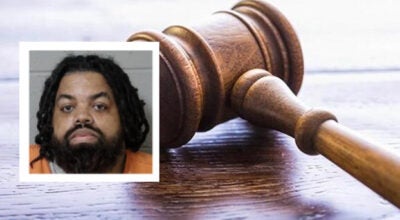Governor hopeful stops in Niles
Published 9:31 am Friday, July 31, 2009

State Senator Tom George and his son, Matthew took a bike ride on a visit through Niles Thursday. George, who is seeking to become Michigan's next governor, stopped in at the Star to discuss his thoughts on Michigan's future, the economy and healthcare. (Daily Star photo/JESSICA SIEFF)
By JESSICA SIEFF
Niles Daily Star
The uncertainty that seems to be plaguing Michigan residents in terms of unemployment and economy doesn’t seem set to fade any time soon.
With Governor Jennifer Granholm’s term coming to a close in 2010, a change in leadership is on the agenda which leaves Michigan’s future in someone else’s hands.
Making a stop in Niles Thursday, one of those hoping to get a chance to set the state on a new course, Republican candidate for governor Tom George, M.D., stopped at the Star to discuss his run – and his concerns for the state.
The obvious topic when speaking with George, who still practices medicine, is healthcare.
“It could be the issue,” he said Thursday.
When it comes to the state’s economy, George said, the biggest piece of proverbial pie is devoted to healthcare, taking money away from education, infrastructure and agriculture.
But George’s outlook on the issue comes from the perspective of someone seeing patients up close and personal day in and day out.
An anesthesiologist, George said that he believes the biggest aspect to the healthcare debate is that reform should take behavior into consideration.
“Roughly half of healthcare cost is linked to behavior,” he said.
It’s not enough to hand the uninsured an insurance card and then turn away, he added. Rather when it comes to Michigan residents at least, the objective is that coverage should take behavior into considering, thereby hopefully providing a healthier population as well.
“We want to help people,” George said. “We want to cover them.”
Better health can mean lower insurance costs, he added. “The costs go down and you can cover more.”
The Kalamazoo area Senator said that 23 percent of Michigan residents continue to smoke – compared to what he estimated is a national average of 20 or 21 percent.
He does not necessarily disagree with the notion of preventing insurance companies from screening patients for preexisting conditions. “What you have to do, he said, is make a distinction between condition and behavior. They’re two different things. The behavior is the key.”
George announced his run in January and said his campaign would focus on the states all but broken economy. In June, he took his campaign to the road with what was his third annual bike tour from his Kalamazoo district to the state capital of Lansing and the first phase in a statewide bicycle tour.
During his ride, George hinted at the need for economic and healthcare reform within the state.
“Fixing Michigan’s economy will require us to look at a number of policy solutions that help to diversify our economy, create and retain jobs, retrain displaced workers, support education, and encourage people to make healthy behavior choices,” George was quoted as saying. “It is important to understand that health care is the biggest expense in our state’s budget and the key to turning our state around is addressing our unhealthy population.”
Though he arrived in Niles by car on Thursday, George did bring his bike along, and spent some time riding around downtown.
George also discussed the recently proposed budget by House Republicans, saying that those fellow members of his party have yet to identify “where the revenue is coming from.
“We need to fix the budget process,” he said. “So when a chamber presents a budget they have to identify those revenue sources.” Doing so could “help us solve the budget issue earlier.”
Recognizing Niles’ position as a border community where, in particular, residents might find it easier to hop over the state line in search of jobs as unemployment continues to grow, George said once more funding is freed up from a reformed healthcare system, officials can begin focusing that money on fueling a talented labor pool by means of education and providing quality infrastructure.
It’s possible, the state has beautiful agriculture and natural resources and quality education, he said. But the reality is that it will take some heavy pedaling.
With an estimated million jobs lost, he said, “if things turned around and we started adding 50,000 jobs per year, it would take 20 years. So it’s a long road back.”






